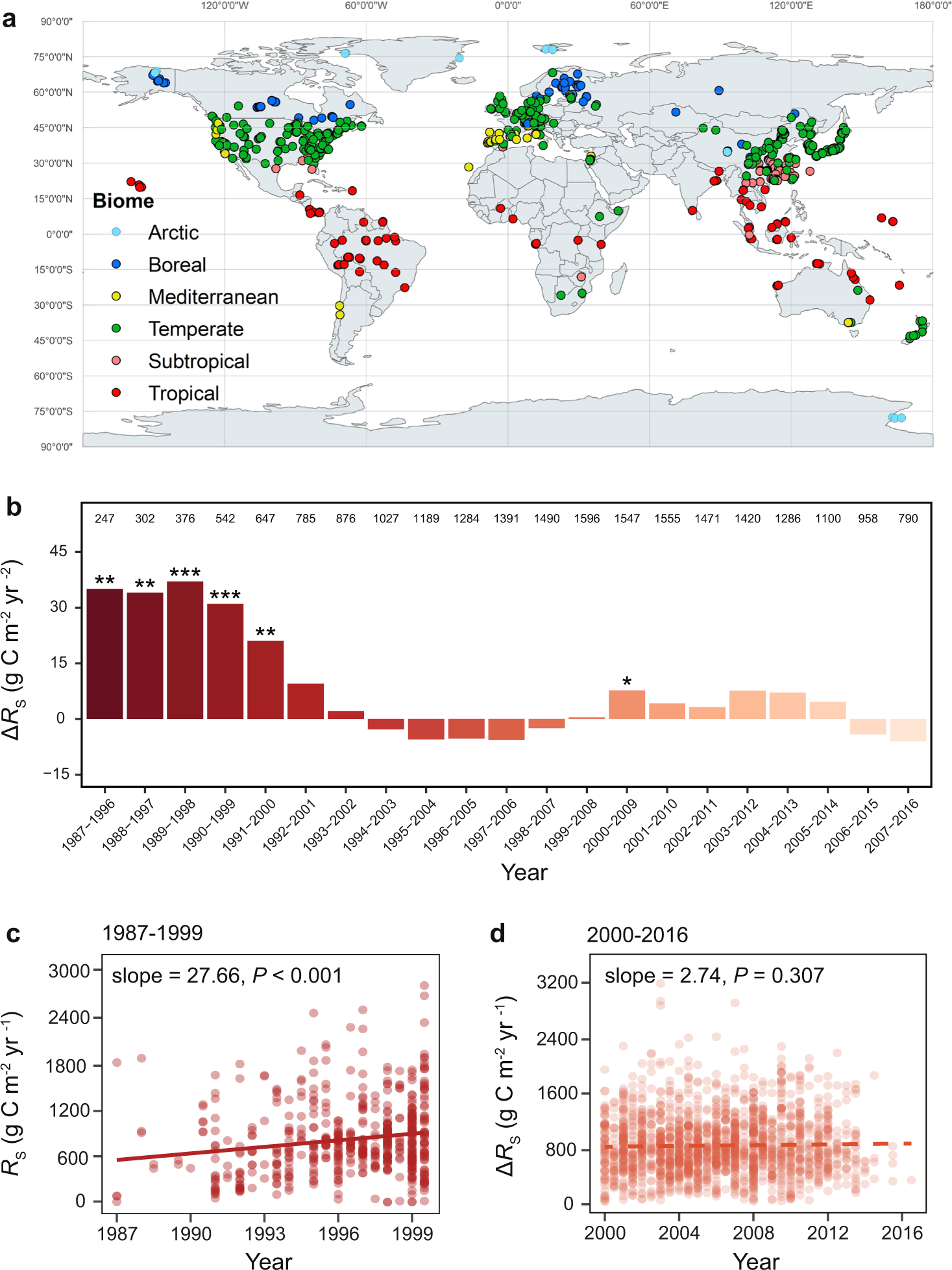A research group led by Drs. Yunfeng Yang and Xue Guo at the School of Environment, Tsinghua University, published an article entitled "Temporal changes in global soil respiration since 1987" in Nature Communications on January 15, 2021. The research paper reveals the temporal dynamics of global soil respiration during 1987-2016 and uses carbon flux models to predict global soil respiration dynamics after 2016. The study is an important milestone toward elucidating carbon dioxide emission patterns and underpinnings.
Soil respiration, i.e., the release of carbon dioxide from the soil into the atmosphere, is the largest terrestrial carbon flux only second to photosynthesis. Anthropogenic activities have profoundly resulted in global warming, which stimulates soil respiration significantly. An in-depth understanding of the magnitude and temporal dynamics of soil respiration on a global scale is valuable for accurately predicting changes in soil respiration under future climate scenarios and achieving the carbon peak and neutrality goals.
Using publicly available soil respiration data, Yang and colleagues analyzed annual dynamics of global soil respiration over the period of 1987-2016. They found a rapid increase in global soil respiration during 1987-1999, but little change during 2000-2016, owing to global warming hiatus. However, soil heterotrophic respiration, mostly driven by soil microorganisms, continued to increase throughout 1987-2016, revealing enhanced microbial decomposition of soil organic carbon that could exacerbate a potential risk of soil carbon loss. The average annual global air temperature resumed escalating after 2015, making recent years the hottest ones since the industrial revolution. The model analysis showed that global soil respiration increased with global warming, As a result, it will be challenging to mitigate greenhouse gas emission and climate changes on a global scale.

Geographical distribution of Rs data and temporal changes of RS in different time periods.
A Ph.D. student Jiesi Lei and Dr. Xue Guo are the co-first authors. Drs. Yunfeng Yang and Qun Gao are the co-corresponding authors. The research was supported by National Natural Science Foundation of China for Outstanding Youth Scholar Program, the Second Tibetan Plateau Scientific Expedition and Research Program (STEP), and the China National Key R&D Program.
The link to the paper:https://www.nature.com/articles/s41467-020-20616-z





